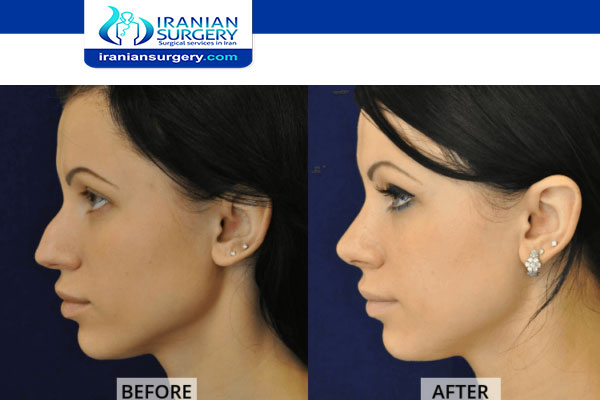Deviated Septum Treatment without Surgery
Before going ahead with a septoplasty, there may be other things you can try first, depending on your condition.
If your nasal septum is deviated, surgery provides the most lasting and effective solution. However, many people try other treatments and get sufficient relief without the need for surgery.
Nasal obstruction due to a deviated septum is often made worse by allergies or infections. By treating the allergy or infection, your nasal obstruction may improve enough for you to breathe through your nose without surgery. Oral contraceptives and certain prescription drugs used for treating high blood pressure and mood disorders can also increase nasal congestion.
Read more about : Pros and cons of deviated septum surgery
Read more about : Revision Rhinoplasty
Medications for nasal obstruction and allergies
. Nasal steroids
Steroid nasal sprays may be a long-term solution to nasal obstruction, but don’t give immediate relief. You need to use them on a regular basis to reduce inflammation in your nose. They can cause side effects including dryness, burning, stinging, sore throat and, occasionally, nose bleeds. If you have other health conditions, you need to talk to your doctor before taking nasal steroids. Your pharmacist can recommend a steroid nasal spray.
. Allergy medications
If your nasal obstruction has an allergic component, you may benefit from an antihistamine. They are available as tablets and nasal sprays. If you’re choosing a tablet, look for one that doesn’t cause drowsiness, as this can affect your ability to drive and work.
Non-drug methods of treating nasal obstruction
. Nasal strips
These are small adhesive-backed strips that you stick over your nose. They contain spring-like bands that help lift the sides of your nose away from the septum, opening your nasal passages. People often use nasal strips at night, especially if a blocked nose is causing snoring. Nasal strips are available from pharmacies.
. Nasal irrigation
Rinsing out the inside of your nose with salt water can help relieve congestion. It can also boost the effectiveness of the tiny hairs (cilia) that line the inside of your nose and help to clear mucus. Adding salt and bicarbonate of soda may feel more comfortable than plain water. Commercially available nose and sinus rinses (in squeezy bottles) can be found at pharmacies. You can get a nasal irrigation device called a neti pot from some pharmacies. It’s important to keep the device clean to reduce the risk of infection. Also, you must use a safe source of water. Tap water should ideally be boiled and cooled.
You can also buy saline nasal sprays at the pharmacy. They’re a good choice for children with nasal congestion.
Read more about : Rhinoplasty vs Septoplasty
. A vaporizer or humidifier
Vaporizers and humidifiers add moisture to the air you’re breathing and can relieve nasal congestion, especially when you have an infection. Vaporizers heat water to make steam so they can be a hazard around children. Humidifiers produce a cool mist and are safer around children. If you’re using a vaporizer or humidifier, make sure your room has a chance to dry out regularly as the damp air can harbor bacteria, mold and dust mites. You also need to clean your vaporizer or humidifier carefully after use.
. A hot shower
A hot shower creates steam that can have a similar effect to a vaporizer or humidifier, reducing nasal congestion.
. Avoiding irritants
If you have a deviated septum, avoiding irritants that cause nasal congestion may help you avoid or delay surgery. Many things can cause nasal congestion or make it worse. An allergic reaction to pollen, dust mites or animals may cause additional nasal symptoms known as allergic rhinitis, and may require treatment with antihistamines. Irritation from smoke, paint fumes, household chemicals or perfumes is another common cause of nasal inflammation. Some people experience nasal congestion in response to certain foods and drinks such as red wine, milk or beer.
Source:
. https://www.hcf.com.au/preparing-for-hospital/nasal-septum-surgery/alternatives-to-septoplasty
10 common questions about how to fix a deviated septum without surgery
[kkstarratings]


